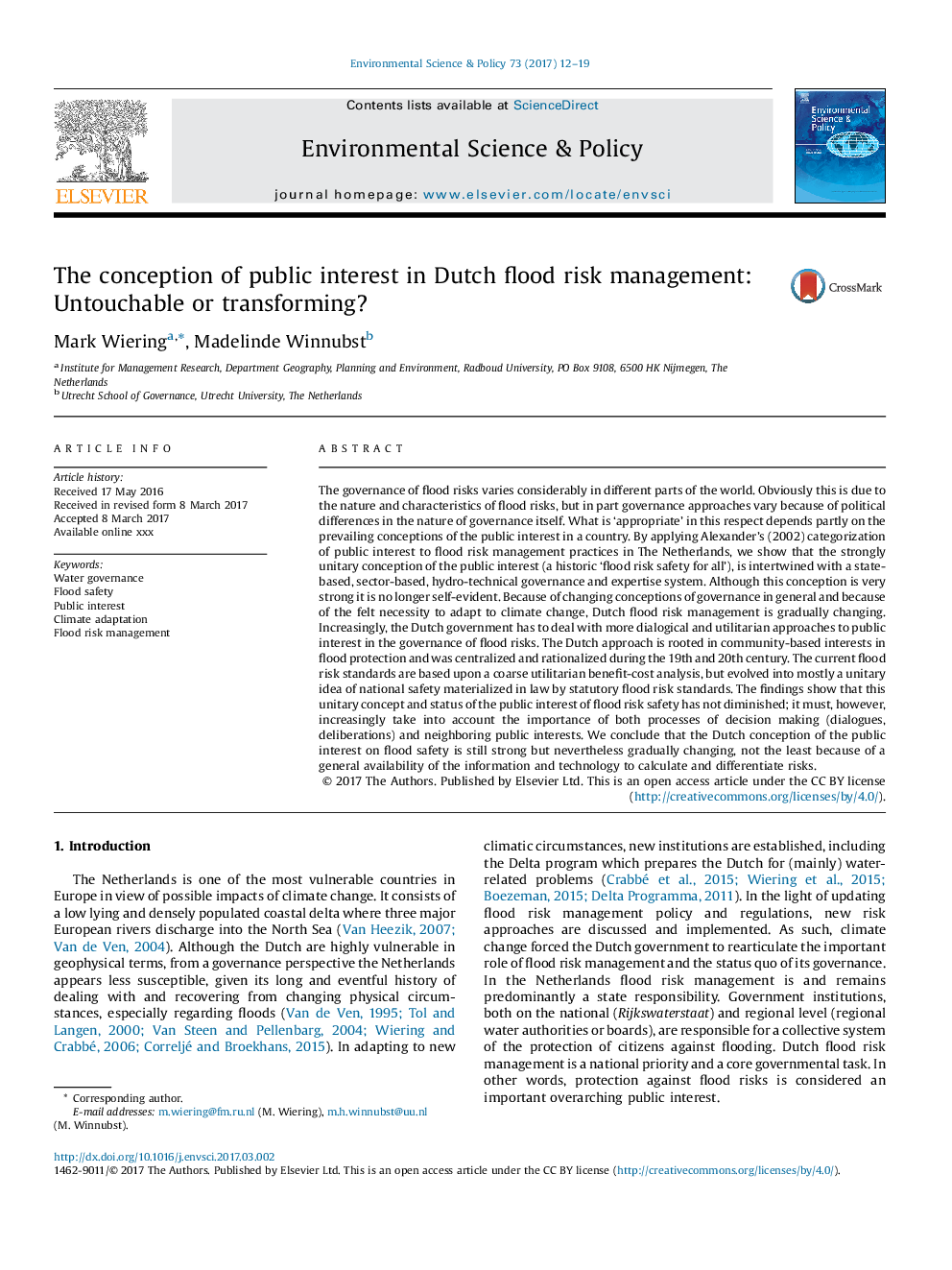ترجمه فارسی عنوان مقاله
مفهوم منافع عمومی در مدیریت ریسک سیلاب هلندی: غیر قابل تحمل یا تبدیل شدن؟
عنوان انگلیسی
The conception of public interest in Dutch flood risk management: Untouchable or transforming?
| کد مقاله | سال انتشار | تعداد صفحات مقاله انگلیسی |
|---|---|---|
| 104922 | 2017 | 8 صفحه PDF |
منبع

Publisher : Elsevier - Science Direct (الزویر - ساینس دایرکت)
Journal : Environmental Science & Policy, Volume 73, July 2017, Pages 12-19
ترجمه کلمات کلیدی
حکومتداری آب، ایمنی سیل، منافع عمومی، سازگاری آب و هوا، مدیریت ریسک سیل،
کلمات کلیدی انگلیسی
Water governance; Flood safety; Public interest; Climate adaptation; Flood risk management;

